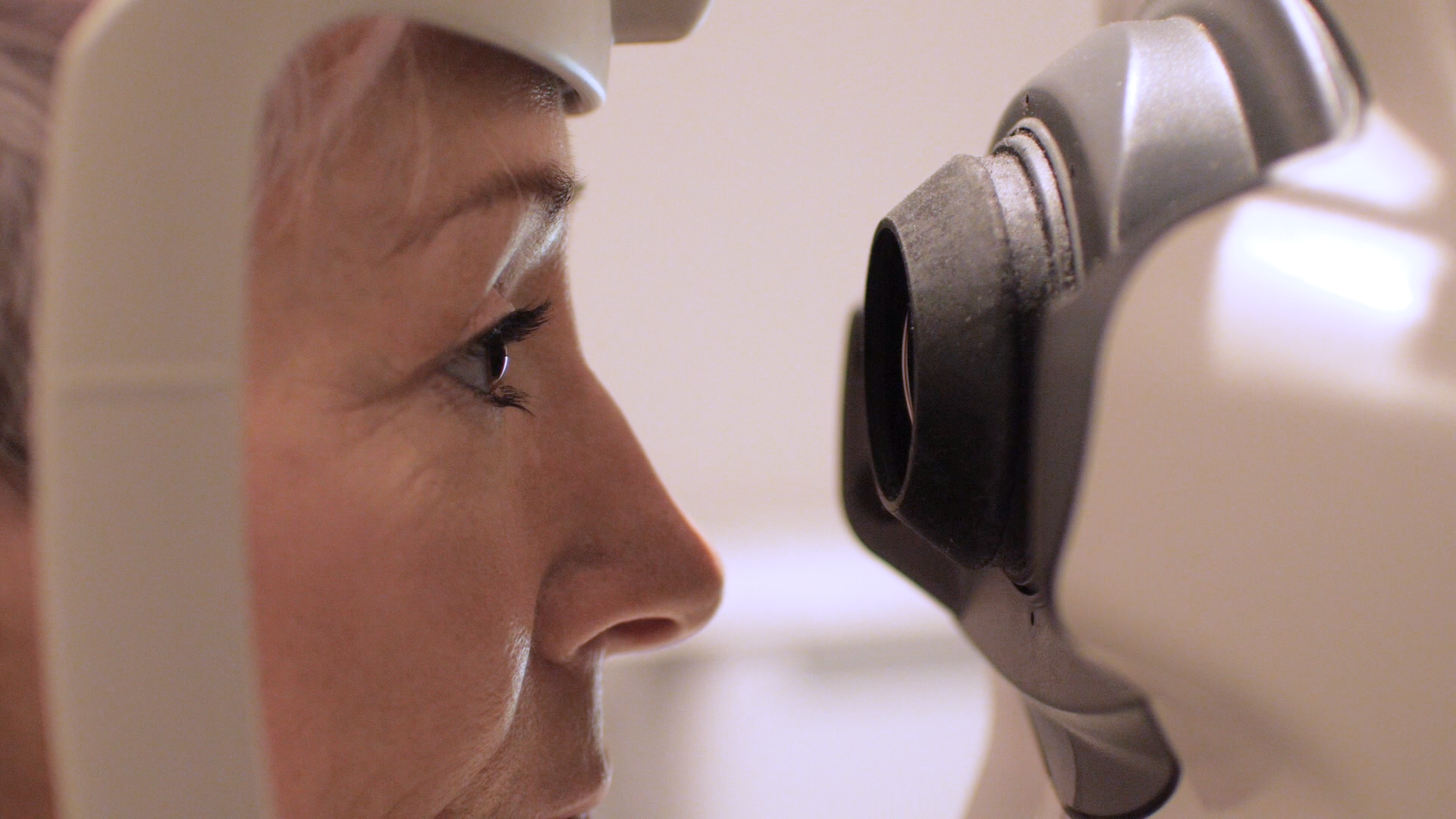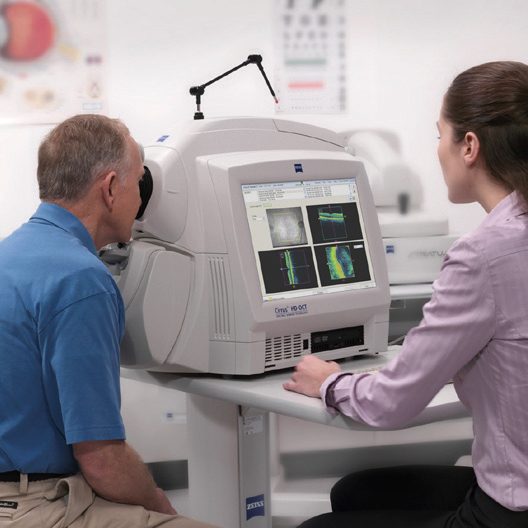
Retinal imaging is a high-resolution digital image taken of your retina, blood vessels and optic nerve located at the back of your eyes. This important piece of technology assists our optometrists to detect any eye health problems or signs of disease early by looking out for any changes over time. It is commonly used for the early detection and management of eye diseases such as glaucoma, macular degeneration, diabetes and hypertension, which we know to be critical in the prevention of serious eye disease progression and vision loss.
How does a retinal scan work?
Just like a regular photo, a retinal scan is completely pain-free. It involves an invisible beam of infrared light being directed into your eye as you look through the eye piece at a coloured dot. It then maps the unique patterns of your retina so that the optometrist has a benchmark to compare against in the future, to ensure even the subtlest changes in the health of your eyes over time can be picked up.
Advantages of retinal imaging include:
- Safe, quick and pain-free
- Non-invasive
- High quality instant digital image
- Detailed images of retina and the important sub-layers of the back of the eye
- Baseline for optometrist to monitor eye health over your life
Do I need a retinal scan?
Depending on the health of your eyes, your optometrist might recommend a retinal scan, particularly if you are at risk of a retinal detachment or tear.
Book an eye test today
Our community of independent optometrists pride themselves on having the latest diagnostic tools so that they can see more, and ultimately give you and your family the best care possible.
Find your nearest optometrist now


